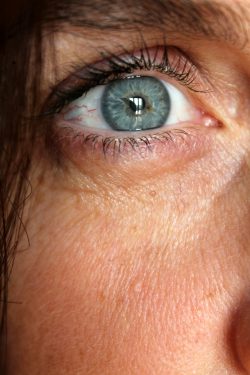What are the Symptoms of an Overdose on Ketamine?
Ketamine, also known as “Special K”, “Kit Kat”, and “cat valium”, is a very popular drug of abuse in today’s party culture. However, it is also a very dangerous drug to be using in a manner other than that for which it was intended and without medical personnel standing by to monitor its effects and your reaction to it.
While it is used legitimately as an anesthetic, even this use presents the potential of adverse side effects and overdose. So, using ketamine recreationally greatly increases these risks. But, what are the symptoms of ketamine overdose and is it dangerous?
Early Symptoms
Ketamine is known to be a dose specific drug. What this means is that the larger dose of ketamine you take, the more drastic the effects.
In fact, according to Brown University, there is only a very minimal difference between the dose for desired effects and overdose. Ketamine acts quickly, and the symptoms of overdose present in an equally rapid manner. Early symptoms include:
- Severe hallucinations
- The inability to move or feel your body
- Difficulty breathing
- Extreme rage or violence
- A complete loss of touch with reality
These early signs echo some of the effects that ketamine users desire, making it difficult to recognize overdose quickly. The only sure way to avoid overdose is to stop using ketamine completely, a task best accomplished with the help of addiction treatment.
Later Symptoms
As ketamine works through the body, more signs of an overdose will become apparent. However, by the time that these symptoms present themselves, your life may already be hanging in the balance. These include:
- Slowed or stopped heart rate
- Unconsciousness
- Slowed or stopped breathing
- No response to stimulus of any kind
Again, by the time that these symptoms become apparent you are in very serious trouble that requires medical intervention.
For addiction treatment that will help you avoid these symptoms, call 800-915-1270 (Sponsored) today.
What Do Doctors Check for During Ketamine Overdose Treatment?
The Risk of Damage
Even with proper medical treatment, there is a very high risk of suffering long term consequences from overdosing on ketamine. According to the National Library of Medicine, these are:
- Death
- Persistent flashbacks
- Brain damage
- severe liver and kidney damage
These consequences are incredibly common in people that have overdosed on ketamine. This shows that using ketamine to improve your party experience is simply not worth the risk. Instead, you should seek ketamine abuse treatment and avoid the chances of suffering these consequences.
Getting Treatment
If you suspect you or someone you care about has overdosed on ketamine, it is imperative that you seek emergency medical treatment immediately. The risk of death or permanent damage is extremely high in cases of ketamine overdose. Even if you have not overdosed, ketamine abuse and addiction greatly increases your risk of overdose.
For that reason, you should seek ketamine addiction treatment. Finding a treatment center is the first step to accomplishing this goal. Call us at 800-915-1270 (Sponsored) today and allow our counselors to assist you in getting the help you need to get off of ketamine and avoid the risks associated with overdose.

 Symptoms of Ketamine Overdose -
Ketamine is a club drug, and it is a dangerous one. It is possible to overdose on ketamine, among other dangers, and users should be aware of the signs
Symptoms of Ketamine Overdose -
Ketamine is a club drug, and it is a dangerous one. It is possible to overdose on ketamine, among other dangers, and users should be aware of the signs  Ketamine Toxicity Dangers & the Need for Treatment -
Ketamine toxicity, or a ketamine overdose, can have dangerous side effects that can lead to permanent health issues or even death.
Ketamine Toxicity Dangers & the Need for Treatment -
Ketamine toxicity, or a ketamine overdose, can have dangerous side effects that can lead to permanent health issues or even death.  Recognizing Ketamine Overdose Symptoms -
Overdosing on ketamine can lead to amnesia and other consequences. It can induce a k-hole, which is a very negative reaction some users experience
Recognizing Ketamine Overdose Symptoms -
Overdosing on ketamine can lead to amnesia and other consequences. It can induce a k-hole, which is a very negative reaction some users experience  What is Ketamine Psychosis? -
When people take too much ketamine they are at risk for overdose situations similar to psychosis. Symptoms include loss of touch with reality, unconsciousness and amnesia
What is Ketamine Psychosis? -
When people take too much ketamine they are at risk for overdose situations similar to psychosis. Symptoms include loss of touch with reality, unconsciousness and amnesia  5 Things that Contribute to Ketamine Overdose -
Drug tolerance, alcohol use, intentional overdose, poly drug use, and impurities all contribute to ketamine overdose
5 Things that Contribute to Ketamine Overdose -
Drug tolerance, alcohol use, intentional overdose, poly drug use, and impurities all contribute to ketamine overdose